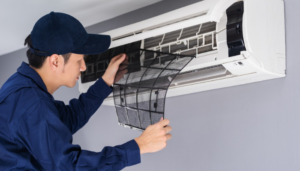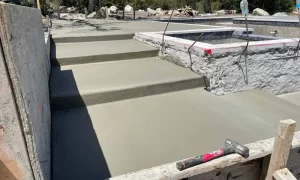Separating Heat Pump Facts From Fiction

Heat pumps are impressive inventions that utilize technology similar to that found in air conditioners and refrigerators. They work by extracting warmth from various sources, including the surrounding air, geothermal energy, or nearby bodies of water. The system then amplifies this heat and transfers it to where it’s needed most.
Although heat pumps are gaining more attention, there remains a considerable amount of misinformation regarding their capabilities. It’s easy to mistakenly believe they are outdated since they are an older technology.
Let’s examine the facts about heat pumps and dispel any lingering myths. This way, we can appreciate their true potential as a sustainable and efficient HVAC solution for homes and businesses alike.
They Provide Both Heating and Cooling
Most people are misled by the name, thinking that heat pumps only provide warmth. However, they can also cool spaces in the summer. Similar to how a refrigerator operates, heat pumps take warmth from inside your place and move it outdoors to keep you comfortable.
They Operate Quietly
Heat pumps do produce some noise due to fans circulating air over the coils and throughout the property. This sound is similar to the one made by a refrigerator when it cycles on and off, and it’s often barely noticeable to most individuals. Many brands of heat pumps are also designed to operate quietly. However, if a unit starts making excessive noise, it’s time to contact heat pump specialists for an inspection.
They Require Minimal Space
The necessary room for a heat pump varies depending on the type and manufacturer you choose—whether it’s ductless, air-to-air, or ground. Typically, the larger components of heat pumps are installed outside the house, which requires ample space for air circulation, maintenance access, and necessary piping. Generally speaking, the area requirements are pretty similar to those for air conditioning systems.
They Work in Various Insulation Conditions
Most HVAC systems perform more efficiently in properties with proper insulation, leading to lower energy bills. However, heat pumps can compensate for insufficient insulation if they are appropriately sized for your specific situation. A professional can conduct a Manual J calculation to assess your place and determine the correct size unit for installation.
They Function in Cold Weather
Although extreme cold can impact their efficiency, many heat pumps come with supplemental heating systems that help maintain optimal performance even in freezing temperatures. Dual-fuel heat pump systems, which utilize a gas furnace in place of an air handler, are advisable for regions that experience severe winters.
They Are Environmentally Friendly
Some skeptics claim that heat pumps aren’t eco-friendly due to their reliance on electricity. However, unlike traditional heating systems that depend on fossil fuels, heat pumps can run on renewable energy sources like solar or wind power. Furthermore, since this equipment transfers heat rather than generates it, it is more energy-efficient and has minimal CO2 emissions.
They are Simple To Operate and Fix
Heat pumps are just as easy to use as traditional boilers. They can be programmed to run automatically once the desired temperatures are set. Moreover, heat pumps are among the most straightforward HVAC solutions to repair because they utilize the same components for heating and cooling. They have fewer parts compared to separate units such as air conditioners and furnaces.
Their Installation Is Manageable
While installing a heat pump is more intricate than putting in a standard boiler, air source models are relatively easy to set up. On the other hand, ground and water heat pumps are more complex and usually need planning permission. Nevertheless, if they are the best option for a property and a qualified professional handles the installation, the process can go smoothly.
They Need Routine Upkeep
All appliances and large electrical systems require regular maintenance, and heat pumps are no different. However, they don’t need excessive upkeep and only require annual maintenance to maintain efficiency, similar to furnaces and air conditioners.
Ready To Enhance Your Space’s Climate Control?
Reach out to trusted heat pump specialists who can assist you in making the best choices for your HVAC needs. They can provide personalized advice and excellent services, helping you ensure your system operates efficiently. With expert installation and maintenance, you can enjoy a comfortable, energy-efficient environment year-round!








